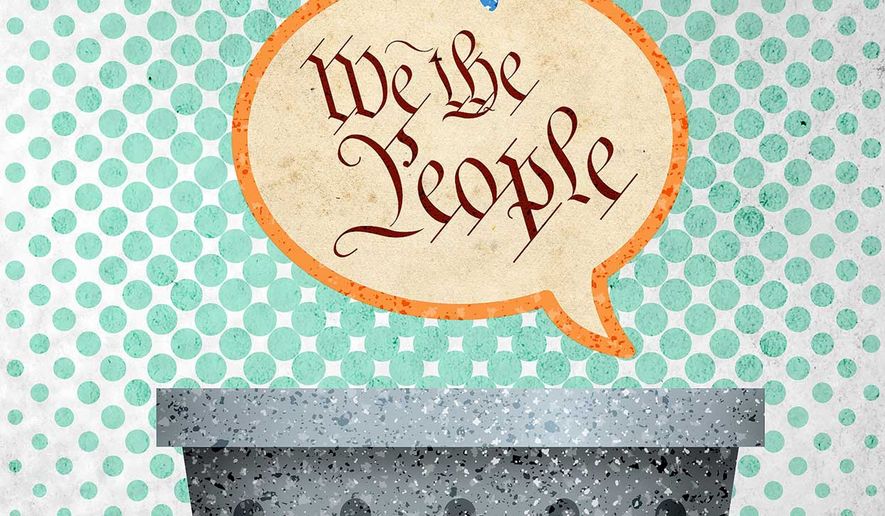OPINION:
The censorship of academic speech is dangerous for us all. Silencing students and professors stunts free thinking. When free speech is shut down in schools, a domino effect ensues. Professionals working in their fields face real-world obstacles to free expression. Speaking out about or even just questioning contested norms can cost them their ability to practice. Science becomes unmoored from proper academic inquiry, and society at large suffers. This has inescapable implications for everything from parental rights to good medical practices.
Take, for example, Christian Cortez Pérez, a recent university graduate in Mexico, who risks losing his license to practice psychology based solely on what he said in his graduation speech. At the top of his class at the Autonomous University of Baja California’s School of Medicine and Psychology, Christian earned the right to deliver the commencement address at his graduation ceremony. In his speech, he voiced his deeply held moral convictions regarding the state of the world today on many issues.
Calling on the University and his peers to reject radical gender ideology agendas, Christian was confronted by loud protesting and walkouts from some students and faculty. Since then, his professors have launched a silencing and sanctioning campaign against him. The University has initiated formal proceedings to consider revoking his degree and withholding his license, in addition to issuing a Mexico-wide notice alerting psychology associations of his statements.
Christian could be banned from practicing in his field, thrusting him into an exhausting fight to save his reputation and career. Reminiscent of what befell Jordan Peterson, his tale makes clear that the profession of psychology is no safe space for dialogue and free expression. Christian awaits judgment from the University on September 18. All that he has worked for hangs in the balance.
Professors should not be able to sanction students in such far-reaching ways simply because they disagree with a student’s views. And public universities have no business punishing people simply because they hold different views than their colleagues or administration. As noted by Christian, “I am filing a counterclaim to protect my rightful interests, but also to take a stand in defense of the free speech rights of every student. To be clear, I recognize that some may not agree with the content of my speech, but that’s what free speech is all about. Everyone should be able to peacefully share their views at university, without fear of punishment or retaliation”.
Lest this sound far from home, the United States is rife with similar cases of academic censorship. For example, Dr. Alan Josephson, a distinguished professor at the University of Louisville, was demoted, harassed, and then fired after he spoke out about gender dysphoria. He served as Chief of the Division of Child and Adolescent Psychiatry and Psychology at the University for nearly 15 years. His contract was not renewed after he, in his personal capacity, discussed the proper treatment of children struggling with gender dysphoria at an off-campus, out-of-state event.
Many of us have heard the story of Tanner Cross, a physical education teacher at Leesburg Elementary School in Virginia. At a school board meeting, Tanner voiced his opinion about Loudoun County’s proposed Policy 8040, which would force teachers to deny truths about what it means to be male and female to students both inside and outside the classroom. He was promptly fired and reinstated only after taking legal action. Tanner, along with two other teachers, is challenging Policy 8040 in court to stop its severe infringement on the rights of teachers.
These are but a few examples of an insidious trend taking over academic institutions across the world. Free speech rights are under attack, and if the campaign to punish these individuals is successful, it shows that anyone who dares to speak in public is in danger.
Schools at every level, from elementary to universities, should be marketplaces of ideas, not assembly lines for one type of thought. They should encourage the viewpoint diversity necessary for vibrant academic life and prepare students for life in a world where people frequently disagree. This is the prerequisite for the truth to shine through oppressive ideological agendas.
As the harmful repercussions of these agendas increasingly come to light, we are rapidly losing the ability to exercise our fundamental free speech right to respond. Many feel compelled to use their platforms to speak out, advocating for children and promoting a healthy understanding of the person. They are being punished as a result. This should give the rest of us something to think about—when you can’t even voice your thoughts, you know something is awry.
In the U.S., the good news is that when we challenge bad policies, we can win. Over the last 16 years, we have achieved more than 435 victories for professors and students at public schools, with a success rate of over 90%. These are victories for principles enshrined in international law and universal to us all—the rest of the world should take heed. There is hope for academic freedom, but the battle will be hard won and take great courage.
• Elyssa Koren is director of legal communications for ADF International. Follow her on Twitter: @Elyssa_Koren. Tyson Langhofer is director of the Center for Academic Freedom at Alliance Defending Freedom. Follow him on Twitter: @LanghoferTyson.




Please read our comment policy before commenting.